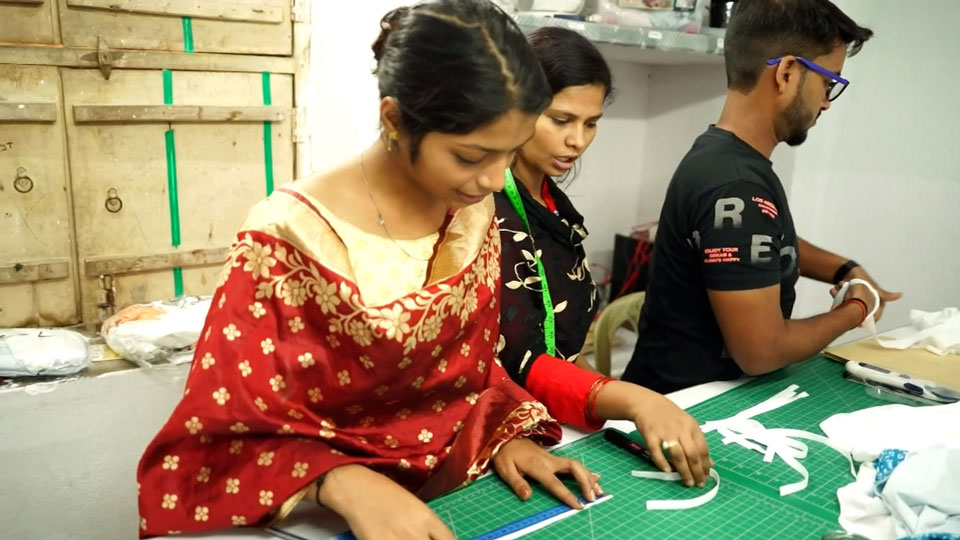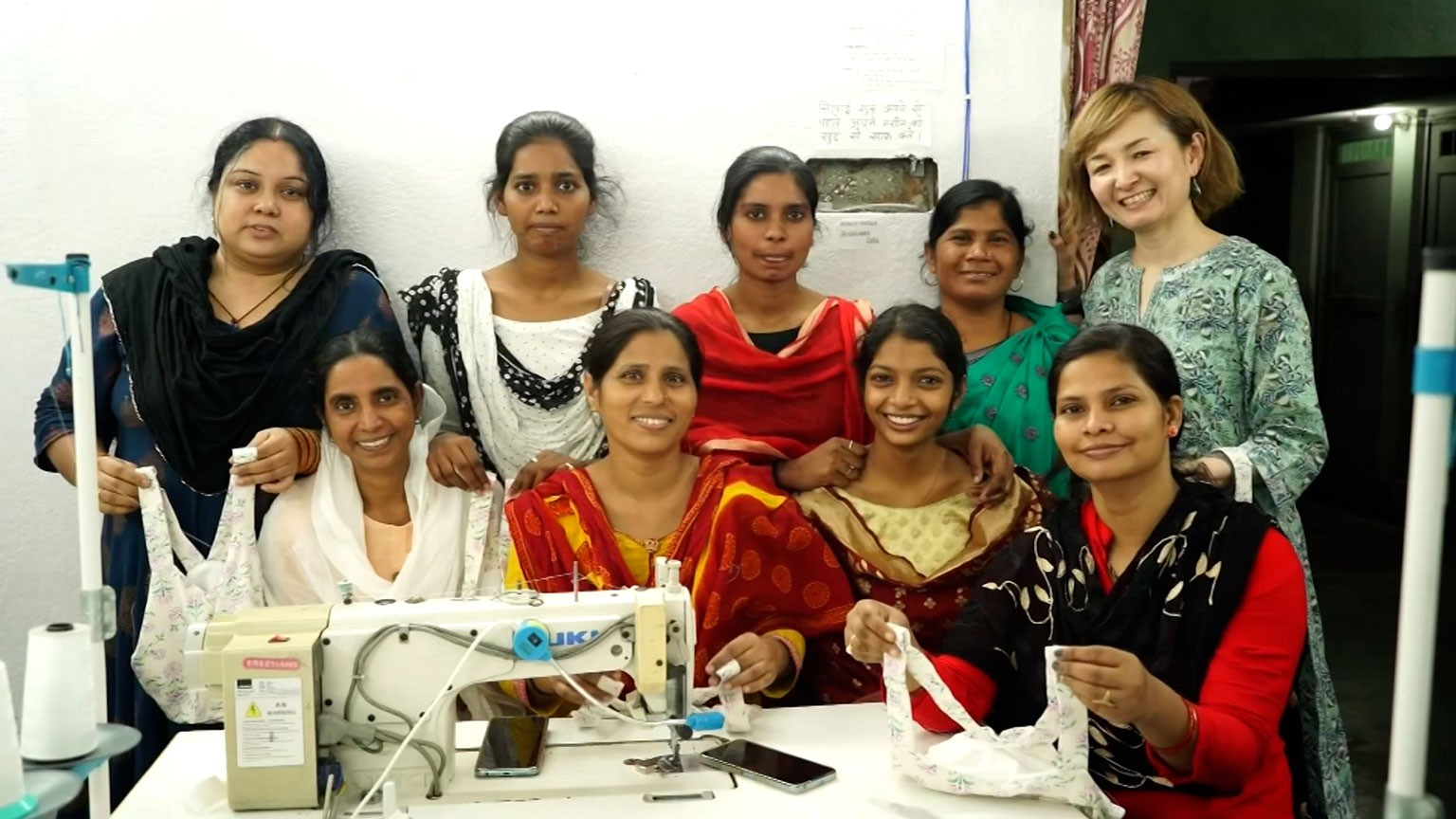
Ricoh Rangorie Project spokesperson Utsumi Tomoko says the program has great value for the women involved: "Working outside home, they've learned they can do something on their own. I hope this can help support their income as much as possible, creating products not only for Japan but also for other global and local Indian markets."

For many of the nine women who work there, it has been a difficult journey. Most are
married, and for a long time they were confined to the home, where they were expected to look after the housework and take care of their families. They come from a background where girls are married young and have limited, or no, access to education.
It has been a task to convince their relatives - especially their husbands' families – that it's beneficial to learn new skills and settle into a formal working environment.
Now, they are learning to stand on their own two feet.
Stepping outside the home
For Rizwana, 35, a mother of four daughters who has been married for 20 years, her work at Rangorie is her first foray into paid work.

Her husband used to be the sole bread-winner as the proprietor of a small grocery shop. But the business collapsed during the pandemic and the family was left with nothing. The situation appeared grim, but then a neighborhood friend told Rizwana about the workshops.
Self-taught in hand sewing, Rizwana immediately took the job. She learned how to operate the stitching machines and set to work alongside the others.

She says she has found a sense of purpose. Her income ensures her own, and her family's, future. She has learned new skills and feels more confident. It used to be that the only man she would ever speak to was her husband, but now she can converse with everyone without feeling shy.
"I am not scared anymore," says Rizwana. "I went out, learned many things, and saw different things.
"We have broken all the rules existing here. And we are now standing on our own feet after deciding to do so. If any more opportunities crop up, we can take them on."

A new perspective
Women like Rizwana say their jobs offer more than just money. Their work has broadened their horizons as they are exposed to international influences, including the Japanese businesswomen who sell the finished products.
The range performed strongly at its sales debut in Tokyo. Customers were especially interested in the background behind the garments.

The positive engagement brought into their lives by a Japanese company is inspiring the women in Bhagalpur who have fun at work, understand each other's experiences, and enjoy working as a team.
Sabreen, 25, is a team supervisor. "We get a chance to teach each other, and also to learn from each other," she says. "We are supportively working together. If someone cannot do one thing, then others help."

Another thing Rangorie has taught its employees is that they have a collective responsibility to make the right changes to build a better future for themselves and women like them.
Setting aside early marriage
The youngest on the team, Bushra Parween, 18, has recently enrolled at a local university. She used to think her life would follow the same course as her sister and neighborhood friends, with an early marriage.
But much has changed. "I desire to do bigger things. I am willing to move further and progress, and make my parents proud that I can do something. We can change people's minds and opinions so that we can do more," she relates.


Parween wants to be an entrepreneur and help other women. "I have the desire to show that a girl can do something new, and can also start her own business."
The collective strength of the staff behind brand Rangorie reflects a positive societal change to allow every woman to realize her full potential and accomplish her dreams.
Watch video: Lens to Asia: Workshop widens Indian women's hopes | NHK WORLD-JAPAN News


